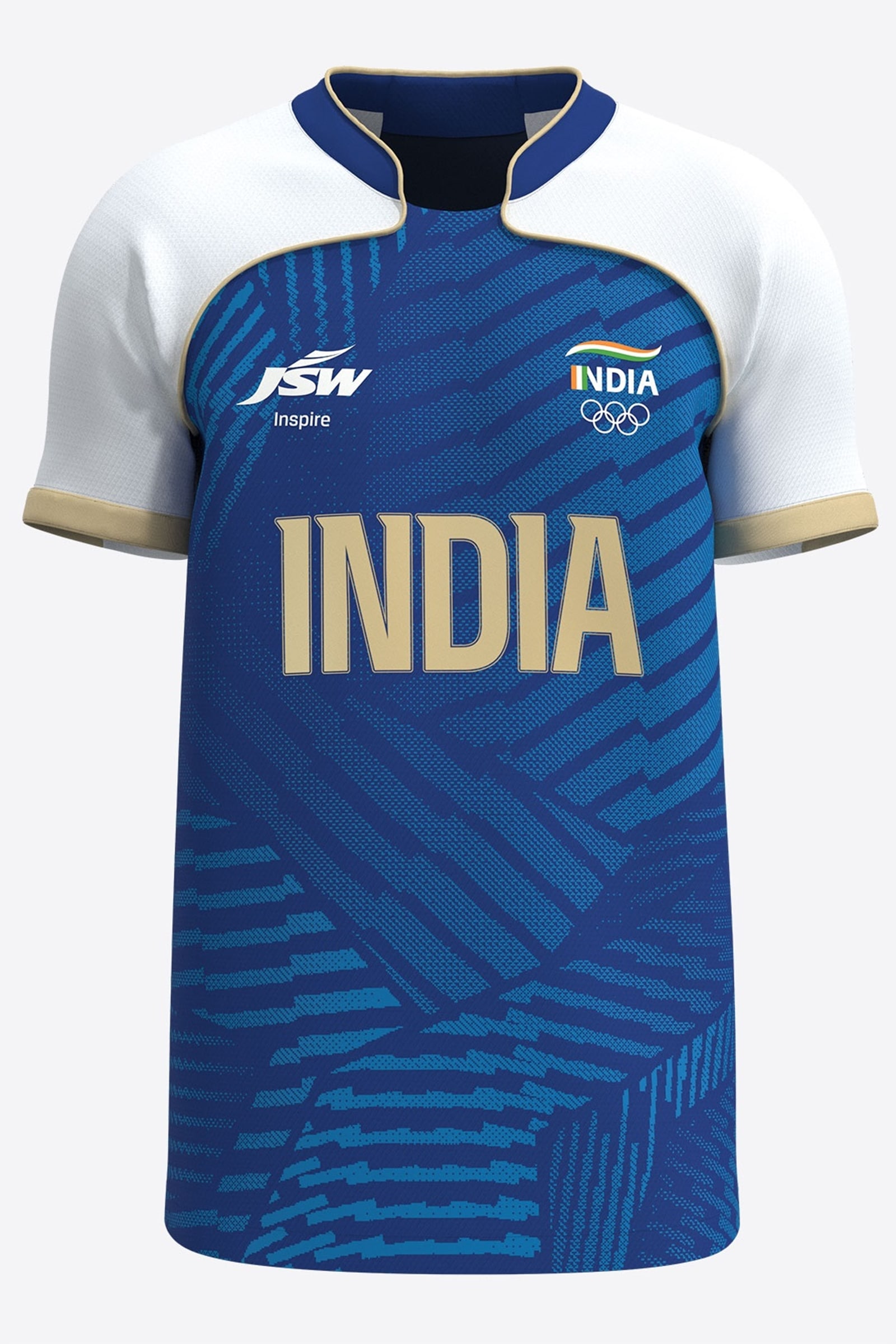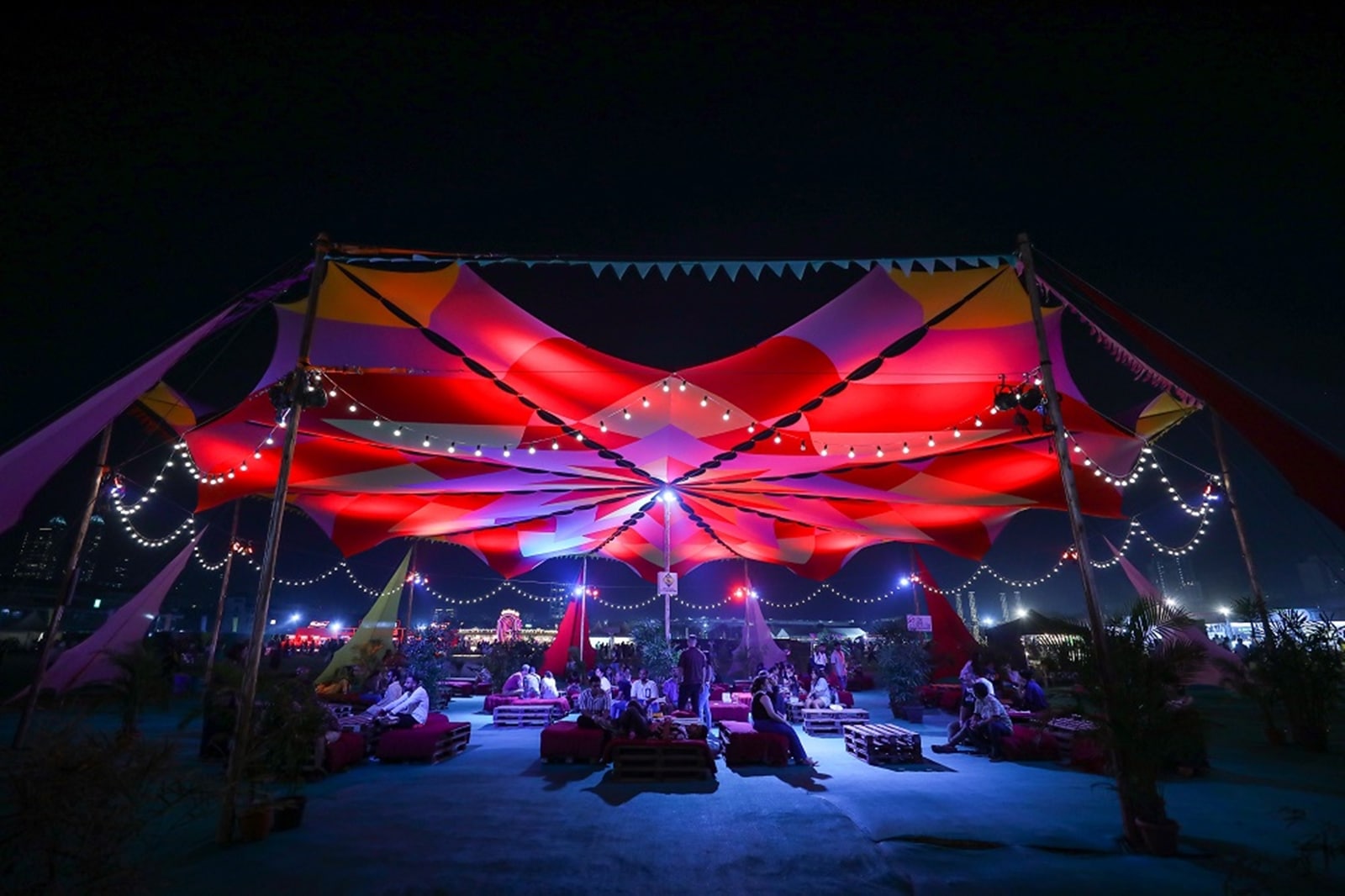
Q: How would you describe your journey, from designing Team India’s Olympic kit to the men’s cricket team’s jersey?
Aaquib Wani: My journey has been about storytelling through design — from music-inspired artwork in my band days (2006-2014) to creating national kits for India. Each project has pushed boundaries and blended cultural narratives with functionality. Seeing my designs represent the nation is humbling.
Q. How did you land these projects?
Aaquib Wani: We carved a niche by approaching every project with a fresh perspective rooted in originality and storytelling. Our studio thrives on diverse projects, and being self-taught allows me to break traditional frameworks and bring a more intuitive, unconventional approach to design. This makes it easier for clients in search of innovative and meaningful work.
Story continues below this ad
Q. Take us through the design process of the Olympic kit and men’s and women’s national cricket jerseys.
Aaquib Wani: For the Olympic kit, we drew inspiration from India’s terrains, translating topography into symbolic and functional patterns through mood boards and prototypes. Each iteration — from conceptual sketches to prototypes — was carefully evaluated for its balance between narrative, aesthetics, and performance.
 Olympics 2024 Team India official travel jersey. (Photo: PR handout)
Olympics 2024 Team India official travel jersey. (Photo: PR handout)
The cricket jersey was developed on a tight timeline. Here, the focus shifted to creating a design that resonated with fans while delivering optimal comfort for the players. Patterns that conveyed strength, unity, and national pride became central to the design exploration. The latest jersey, with the tricolour on the shoulders, draws inspiration from the architectural arches of India’s heritage monuments. If you look closely, the arches are subtly embedded in the design — a quiet nod to the country’s cultural legacy. This attention to detail and narrative-driven approach is what ultimately shaped both projects.
Q. What were the briefs for these two projects?
Aaquib Wani: For the Olympic kit, the brief was to celebrate India’s diversity and create something timeless. It was about honouring the athletes who carry the spirit of the nation.
For the cricket jersey, the brief focused on blending modern design with a sense of national pride. It had to be bold yet respectful of tradition — something fans and players could feel connected to.
Story continues below this ad
Q. You’re also the brain behind themes for Sunburn and Lollapalooza. Tell us about that.
Aaquib Wani: Designing for festivals is an entirely different experience. For Sunburn, it’s about creating an immersive escape — vibrant, energetic, and larger than life. For Lollapalooza India, we leaned into celebrating the city of Mumbai with a concept that mirrored the dynamism of its people and culture. Creating experiences that bring people together through music and art is challenging but rewarding.
Q. When working on such diverse projects, what goes on in your mind?
Aaquib Wani: My focus is always on delivering an experience — whether it’s a jersey, a festival theme, or an installation. I try to channel the essence of the project, ensuring it resonates with its audience while aligning with the client’s vision.
 Designing for festivals is an entirely different experience, he said. (Photo: PR handout)
Designing for festivals is an entirely different experience, he said. (Photo: PR handout)
Q. Did any cricketer reach out to you to commend your work and/or design something for them personally?
Aaquib Wani: Yes, I had the privilege of collaborating with Rohit Sharma on two custom hand-painted shoes during the IPL seasons of 2021 and 2022. In the 2021 season opener, Rohit wore shoes featuring artwork of the endangered Great One-Horned Rhinoceros titled “Save the Rhino” to raise awareness about wildlife conservation — a cause he is deeply passionate about. For IPL 2022, we created another pair of shoes, this time highlighting ocean conservation with intricate artwork of a whale, red corals, and everything underwater titled “Plastic Free Ocean”.
This collaboration paved the way for a more extensive partnership with Adidas, where we designed a full-blown “End Plastic Waste” collection with Rohit. As part of the initiative, Adidas pledged to clean 10 plastic bottles from Mumbai’s beaches for every run Rohit scored during the season. It was an incredible example of how design, sport, and sustainability can inspire real action and create meaningful impact.
Story continues below this ad
Q. Where do you draw inspiration from?
Aaquib Wani: Inspiration is everywhere — architecture, Indian crafts, live music, and travel. My Kashmiri roots often influence my perspective, reminding me of the beauty in detail.
Q: What was your experience with Isha Ambani’s sangeet? How long did you have to execute it, what went behind the scenes?
Aaquib Wani: Commissioned by the Reliance Foundation and curated by Direct Create, I was brought on board to design “Swadesh bazaar” for Isha Ambani’s sangeet in 2018. It was an event of a lifetime for me as it marked my first project after quitting my job and going solo.
The Swadesh bazaar was a beautifully immersive experience celebrating 108 Crafts of India — a sacred number with roots in Indian mysticism. The vision was to showcase India’s rich craft heritage while providing artisans a platform to demonstrate and sell their work. We created experiential zones where guests could directly interact with artisans — from witnessing bell-making craft of Kutch to bangles being handcrafted live.
With only a few months to bring it to life, it was an intense process marked by creativity, meticulous planning, and sleepless nights. Every detail, from the architectural design of the pavilions to the smallest décor elements, was thoughtfully curated to honour the depth of India’s cultural legacy. Watching artisans proudly display their craft and guests deeply engage with these stories was incredibly fulfilling.
Q. Which project is closest to your heart?
Aaquib Wani: It’s hard to choose, but designing the Indian cricket team jerseys holds a special place in my heart. Cricket is a unifying force, and designing something that represents the pride and passion of an entire nation felt incredibly meaningful. The project not only pushed me creatively but also put us on the map, allowing our work to be seen and celebrated globally. Seeing the players wear it on the field and fans embrace it was an emotional experience.
Story continues below this ad
Q. Your take on the design scene in India.
Aaquib Wani: Indian design is evolving rapidly with fearless experimentation and global recognition. Conventional limits no longer bind designers. They are blending history, techniques, and modern aesthetics to create work that feels layered, intelligent, and forward-thinking. International brands are increasingly collaborating with Indian designers, tapping into the fresh perspectives, ingenuity, and craftsmanship we offer.
That said, there’s still work to be done — nurturing cross-disciplinary collaborations, fostering stronger platforms for talent, and advocating for design as a critical force that drives business, innovation, and society. India’s design future is on the brink of something extraordinary. This is just the beginning.



 Olympics 2024 Team India official travel jersey. (Photo: PR handout)
Olympics 2024 Team India official travel jersey. (Photo: PR handout) Designing for festivals is an entirely different experience, he said. (Photo: PR handout)
Designing for festivals is an entirely different experience, he said. (Photo: PR handout)

























